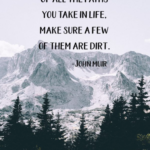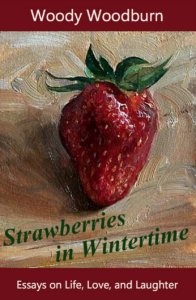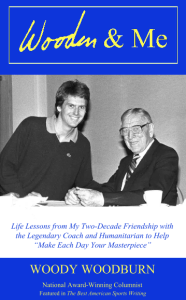 Sharing some smiles from my email inbox…
Sharing some smiles from my email inbox…
“Your column ‘Mining gold in front yard’s wildness’ rang a bell with me,” wrote Cyndi Nichols. “I have always enjoyed nature. I’m a gardener now, but when I was a child I collected bugs, their eggs and offspring. When there was a science fair in school, I brought the bugs and their eggs and the food that they would eat to share. I did not harm them.
“One year, I collected about 200 caterpillar’s eggs from our elm tree. I put them in shoeboxes and fed them elm leaves every day. One day I forgot to put the lids back on and had to scramble to catch them all and put them back in the boxes. Eventually, they spun their cocoons and emerged as butterflies. I took all the boxes into the backyard and let them out at the same time. What a sight!
 “When I was about three, we lived in the desert, in Lancaster. My brother says I walked in with a tarantula in my small hand to show everyone. All my shocked mother could say was, ‘Take that thing outside,’ which I did. To this day I do not kill spiders in the house. Little jumpers and daddy longlegs I catch barehanded, but as I have gotten older larger spiders get caught in tissue and put out.
“When I was about three, we lived in the desert, in Lancaster. My brother says I walked in with a tarantula in my small hand to show everyone. All my shocked mother could say was, ‘Take that thing outside,’ which I did. To this day I do not kill spiders in the house. Little jumpers and daddy longlegs I catch barehanded, but as I have gotten older larger spiders get caught in tissue and put out.
“I still love nature, from the tiniest flowers in the lawn, to the largest Dahlias. I love to garden and would like to have one of everything. I feel the same about animals of all kinds, whether it be pets, lizards, bugs. Thank you for bringing me down memory lane.”
*
Linda Calderon also took a mental trip back to her youth: “My Dad used to walk my late brother and me to the end of our street and teach us which constellations were which. I sure don’t recall today, but it was great for him to do that.
“He also taught us to lay on our backs in the yard and imagine what different things the clouds looked like. I still find myself taking photos of some that look like poodles, etc., and I told my grandkids to go outside at their house and do the same. At 80, I’m still amazed at rainbows and photograph them also.
“I grew up in a small village (about 400 population) in the countryside and I am still in love with nature.”
*
In response to my comment that the Channel Islands are underrated, John Snyder replied: “Shhhh! I sailed to the islands, all of them except San Clemente and San Nicolas, at various times between 1972 and 2015.
“Most of our vacations, and practically all long weekends, were to/around Santa Cruz Island. Other than stinkpots becoming more prevalent over the years, little changed. This included the proposal by the family owing the eastern portion of the island to turn it into a resort area with hotel and fast food restaurants, which, fortunately, was shot down.
“That the island has been preserved is one of the happier memories of my life. As far as I’m concerned, the Channel Islands can remain concealed from human view, much like Brigadoon. Not like Brigadoon necessarily, but more, out-of-sight; out-of-mind, only those who have taken the time and made the effort to get there, knowing its delights.”
*
Barbara Murray shared this closing wisdom: “It is hard in this current time to remember the beautiful things. I have one addiction: I think laughing is underrated. It heals the body and the soul.”
* * *
Woody Woodburn writes a weekly column for The Ventura County Star and can be contacted at WoodyWriter@gmail.com. Follow him on Twitter and Instagram at @woodywoodburn. His SIGNED books are available at www.WoodyWoodburn.com.

 Personalized Signed copies of WOODEN & ME: Life Lessons from My Two-Decade Friendship with the Legendary Coach and Humanitarian to Help “Make Each Day Your Masterpiece” and “Strawberries in Wintertime: Essays on Life, Love, and Laughter” are available at WoodyWoodburn.com
Personalized Signed copies of WOODEN & ME: Life Lessons from My Two-Decade Friendship with the Legendary Coach and Humanitarian to Help “Make Each Day Your Masterpiece” and “Strawberries in Wintertime: Essays on Life, Love, and Laughter” are available at WoodyWoodburn.com



